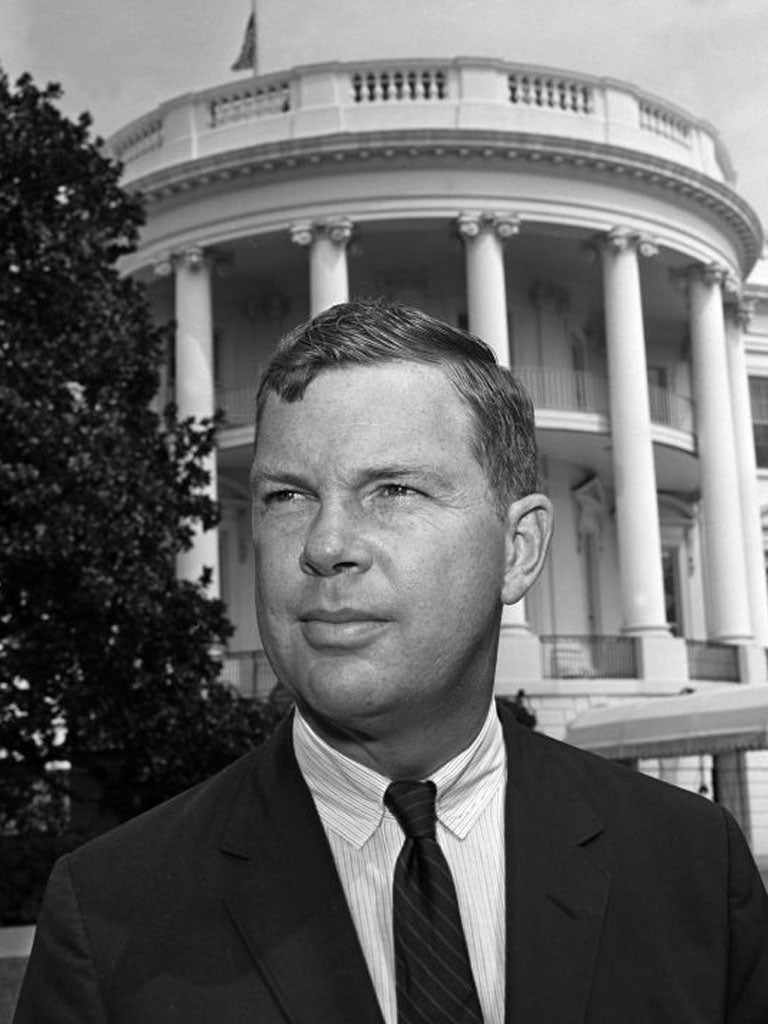Tom Wicker: Reporter who covered the killing of John F Kennedy

Huge stories seal the reputations of great reporters. Just as no story in modern American history was bigger than the assassination of John F Kennedy, few journalists were more respected and more authoritative than Tom Wicker, reporter, columnist and editor at The New York Times for more than three decades. Wicker was a White House correspondent for the Times when he was the sole reporter assigned by the paper to cover a routine presidential visit to Dallas on 22 November 1963 – so routine that he didn't even have a proper notebook with him. But when shots were fired at JFK's limousine as it passed through Dealey Plaza, the world was turned upside down.
Wicker was in a press bus at the back of the motorcade, as initially utter confusion reigned. "No one knew what happened, or how, or where, much less why," he wrote in a subsequent memoir, but "gradually, bits and pieces began to fall together."
He scribbled notes on the back of White House hand-outs of the president's itinerary, sending his account in bursts, as and when he could, back to head office; "I would write two pages, run down the stairs, across the waiting room, grab a phone and dictate." The result was a first draft of history whose immediacy and power even now is undiminished.
Somehow, Wicker kept personal emotion out of his prose, but the photographic exactness of his words rendered emotion superfluous. Describing Jackie Kennedy as she left the hospital where the president had died, he wrote that, "Her face was sorrowful. She looked steadily at the floor. She still wore the raspberry-coloured suit in which she greeted welcoming crowds in Fort Worth and Dallas. But she had taken off the matching pillbox hat she had worn earlier in the day, and her dark hair was windblown and tangled. Her hand rested lightly on her husband's coffin as it was taken to a waiting hearse."
Wicker caught the journalism bug in his teenage years, when he worked on his high school newspaper. His real ambition, however, was to be a novelist, and by the time he arrived at The New York Times in 1960 he had written several books as well as working for four newspapers from his home state of North Carolina.
His coverage of the Kennedy assassination turned him into a star. Within a year Wicker had succeeded James Reston as chief of the Times' 48-man Washington bureau, effectively a state within a state at what, then as now, was America's most important newspaper. By 1966 he was also writing a column, "In The Nation", which would run for a quarter of a century until he retired in 1991.
For all his writing and reporting skills however, Wicker was less gifted in the arts of management also demanded by the bureau chief job. Only a joint threat by several of his colleagues to quit during the 1968 presidential campaign staved off a putsch by editors in New York to remove him, but once Richard Nixon was elected, he moved full-time to column writing and punditry.
Wicker, a hulking man whose languid drawl gave scant hint of the passions that flowed beneath, was a true Southern liberal – a crusader for civil rights and a fierce opponent of the Vietnam war, whose relentless criticism of Nixon earned him a place on the 37th president's celebrated "enemies list". Opinionated and outspoken, he became a fixture on network TV talk shows. Even some of his peers accused him of overfondness of being part of the news, not least during the deadly 1971 prison riots in Attica, New York, when inmates asked him to help mediate negotiations with the state authorities.
But Wicker was unrepentant. Too often the media tried to preserve its freedom by shirking its responsibility, he wrote in a 1978 book. "What the press in America needs is less inhibition, not more restraint."
Rupert Cornwell
Thomas Grey Wicker, journalist and author: born Hamlet, North Carolina 18 June 1926; married 1929 Neva Jewett McLean (marriage dissolved; one son, one daughter), 1974 Pamela Hill; died, Rochester Vermont 25 November 2011.
Join our commenting forum
Join thought-provoking conversations, follow other Independent readers and see their replies
Comments
Bookmark popover
Removed from bookmarks